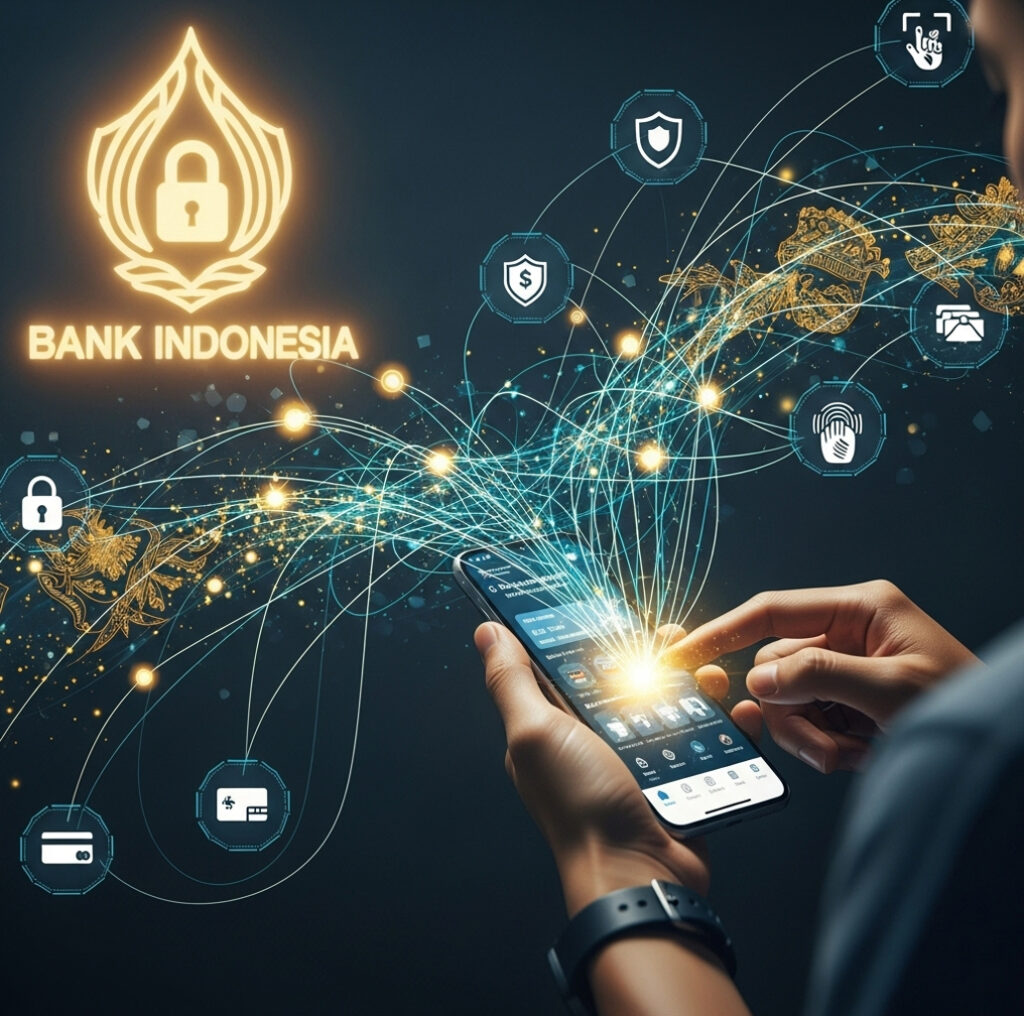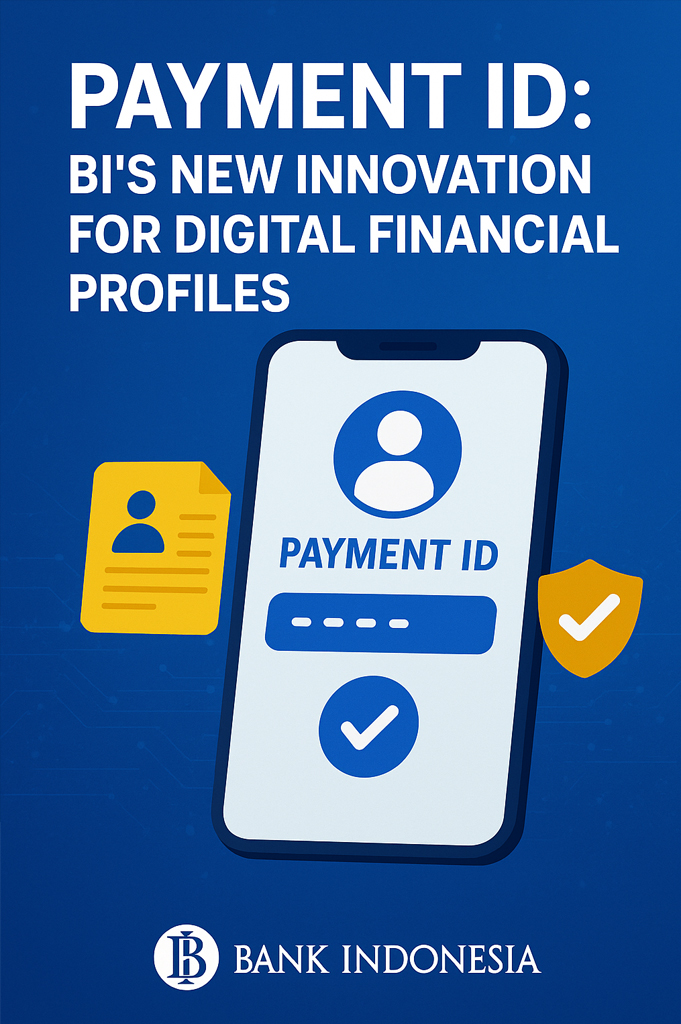Premium Biz Post – In a groundbreaking step toward financial digitalization, Payment ID: BI’s New Innovation for Digital Financial Profiles has officially been introduced to streamline identity verification, improve security, and create a more transparent payment ecosystem in Indonesia. The system marks a significant milestone in Bank Indonesia’s mission to modernize the country’s payment infrastructure, aligning with the rapid growth of digital transactions and financial services.

Digital Transformation in Indonesia’s Financial Sector
Over the past decade, Indonesia has witnessed exponential growth in digital payments. The widespread adoption of mobile wallets, QR code payments, and online banking has fueled the need for a unified digital identity system. The Payment ID aims to address gaps in security, interoperability, and data accuracy, allowing consumers and businesses to participate confidently in the digital economy.
Bank Indonesia (BI) has long advocated for a more integrated financial ecosystem. With the increasing complexity of financial services, such as peer-to-peer lending, buy-now-pay-later (BNPL) schemes, and digital banking, a standardized method to identify and verify customers became essential. The Payment ID is designed to consolidate user data into a secure platform, ensuring that financial service providers can better assess customer profiles and deliver tailored solutions.
How Payment ID Works
Payment ID functions as a unique identifier for every registered financial service user in Indonesia. Unlike conventional account numbers, the Payment ID acts as a universal profile tag, linking a customer’s information across multiple platforms and financial products.
Here are some of its key features:
- Unique Identifier: Each user receives a Payment ID connected to their KYC (Know Your Customer) details.
- Cross-Platform Integration: Payment ID works across different banks, fintech apps, and payment gateways.
- Enhanced Security: Using biometric verification and advanced encryption, Payment ID minimizes the risk of fraud.
- Data Accuracy: Banks and fintech companies can share standardized data securely, reducing errors and duplicate accounts.
- Regulatory Oversight: BI and relevant regulators can monitor financial flows more efficiently to prevent money laundering and other illicit activities.
The system aims to simplify transactions for users and create a more robust ecosystem for providers, ensuring that security and compliance remain top priorities.
Read More : ”DIY Creative Kitchen Transform Your Cooking Space into a Work of Art”
Benefits for Consumers and Businesses
The implementation of Payment ID offers several advantages for various stakeholders in Indonesia’s digital economy.
1. Consumers
For everyday users, Payment ID simplifies the financial onboarding process. New customers can open accounts or access services more quickly, as financial providers no longer need to perform repetitive verification checks. Additionally, consumers can expect fewer disruptions due to identity mismatches, which are common in existing systems.
2. Financial Institutions
Banks, e-wallet providers, and fintech startups can leverage Payment ID to improve operational efficiency. By having a unified customer profile, financial service providers can design personalized services such as microloans, investment plans, and insurance products. This not only boosts customer satisfaction but also expands financial inclusion across the country.
3. Regulators
With Payment ID, regulators gain a powerful tool to enhance oversight of financial transactions. The centralized system allows for better tracking of suspicious activities and strengthens anti-money laundering (AML) efforts, which have been key challenges in the past.
Driving Financial Inclusion
Indonesia is home to over 270 million people, but millions remain unbanked or underbanked. Payment ID seeks to bridge this gap by simplifying access to digital financial services. With biometric and mobile-friendly registration processes, rural and remote populations can participate in the formal financial system more easily.
Financial inclusion has been a long-standing goal for BI and other stakeholders, as it directly impacts poverty reduction, entrepreneurship, and economic growth. By offering a standardized identity system, Payment ID empowers micro, small, and medium enterprises (MSMEs) to access loans and digital tools that were previously out of reach.
Security and Privacy Considerations
As digital finance grows, so do cybersecurity risks. Payment ID integrates advanced security measures such as blockchain-inspired data encryption, multi-factor authentication, and continuous system audits.
However, BI has emphasized its commitment to privacy, assuring that customer data will only be accessible to authorized institutions and used for legitimate purposes. The regulator is also working with the Ministry of Communication and Information Technology to establish strict data protection guidelines in line with global standards such as GDPR.
Cybersecurity experts have welcomed the initiative but highlighted the importance of consumer education. As much as security systems can safeguard data, users must also be aware of phishing, malware, and scams. BI has announced plans for a nationwide awareness campaign to educate consumers on safe digital practices.
Payment ID in the Global Context
Indonesia’s Payment ID aligns with similar digital identification systems introduced by other nations. For example, India’s Aadhaar and Singapore’s SingPass have demonstrated the transformative power of centralized digital IDs in promoting financial inclusion and improving governance.
The difference lies in Indonesia’s focus on financial profiling. While most national IDs serve multiple purposes, Payment ID is tailored specifically for financial transactions, ensuring a more specialized and secure ecosystem. This model could position Indonesia as a leader in digital financial innovation in Southeast Asia.
The Road to Implementation
BI has laid out a three-phase plan for Payment ID:
- Pilot Testing: Currently underway in collaboration with select banks and fintech firms, focusing on security and scalability.
- National Rollout: Scheduled for mid-2026, with the goal of enrolling 70% of active digital payment users.
- International Integration: Future plans include linking Payment ID to cross-border payment networks within ASEAN, simplifying remittances and trade transactions.
The regulator is also working closely with the private sector to ensure smooth adoption. Industry leaders, including representatives from e-commerce and telecommunications companies, have expressed support, citing the potential to reduce fraud and improve customer onboarding.
Challenges Ahead
While Payment ID offers numerous benefits, its implementation will not be without challenges.
- Infrastructure Readiness: Some rural areas lack reliable internet connectivity, which may hinder adoption.
- Industry Cooperation: Financial service providers must be willing to share data and comply with BI’s standards, requiring strong collaboration.
- User Trust: Public confidence in data protection will be critical. Without trust, users may hesitate to adopt the system fully.
Experts believe these hurdles can be overcome with strong regulatory support, public-private partnerships, and investment in infrastructure.
Market Implications
The Payment ID system is expected to boost Indonesia’s digital economy, which is projected to surpass $130 billion by 2025. As more users join the financial system, opportunities will arise for fintech firms, banks, and e-commerce platforms to offer innovative products. Investors are closely watching this development, as it signals Indonesia’s ambition to become a digital finance hub in the region.
Moreover, the Payment ID may create new business models around data analytics, fraud prevention, and digital lending. By offering deeper insights into user behavior, financial providers can design more targeted services, improving profitability while enhancing user experience.
A Game-Changer for Digital Finance
Payment ID: BI’s New Innovation for Digital Financial Profiles represents a bold step toward a more secure, inclusive, and transparent financial ecosystem. With its emphasis on interoperability, security, and user convenience, Payment ID has the potential to redefine how Indonesians access and use financial services.
As the system matures, it will play a vital role in Indonesia’s economic transformation, driving digital adoption, empowering businesses, and ensuring that every citizen has access to safe and reliable financial tools.
The success of Payment ID will depend on collaboration between government agencies, financial institutions, and consumers. If executed effectively, it could become a model for other countries seeking to strengthen their digital payment infrastructure.



